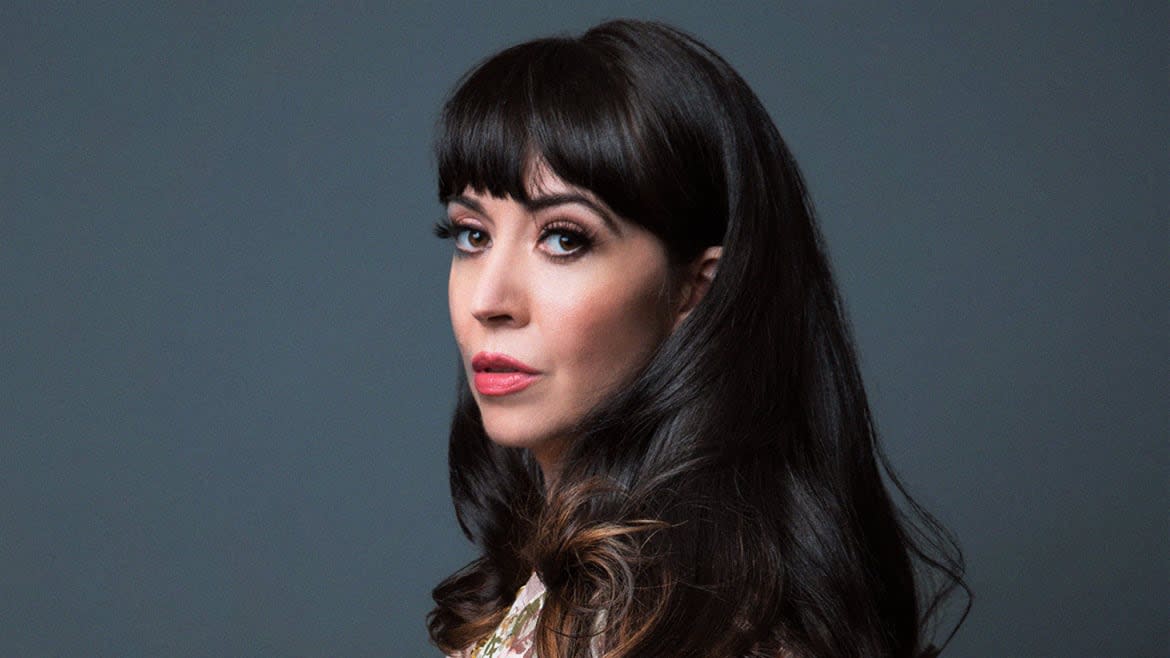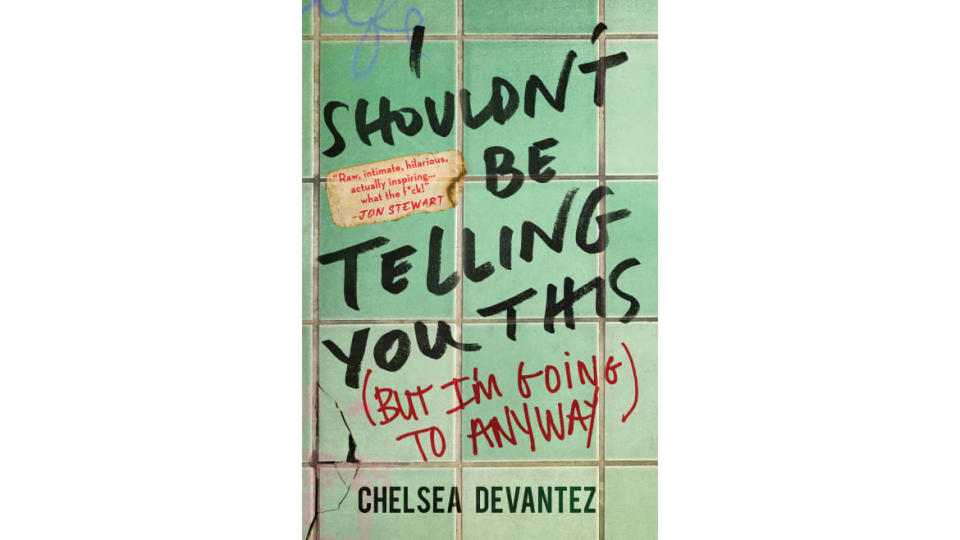Why Jon Stewart’s Ex-Head Writer Chelsea Devantez Decided to Tell Him the Truth

Chelsea Devantez, who served as head writer at Jon Stewart’s former Apple TV+ show, has kept a pretty big secret for most of her career. But with her new memoir out this week, I Shouldn't Be Telling You This: (But I’m Going to Anyway), Devantez decided it was time to pull back the curtain on her experience with domestic abuse—and what it was like to shepherd Stewart’s Emmy-nominated show while trying to cope with her trauma.
“I had cried so much,” Devantez tells The Daily Beast of her time as head writer on The Problem With Jon Stewart, as the writers’ room took on 2021’s domestic violence episode. “[Jon] definitely saw me after the show and knew how emotional I was.”
It was at that point that Devantez decided it was time to tell her famous boss why the episode was so important to her, even though she writes in her book that she appreciated that she didn’t have to: “What had come to matter even more was that Jon had eagerly taken on the episode topic without ever knowing what had happened to me personally. Because he already knew how much it mattered.”
Even so, Devantez tells The Daily Beast, “I told him everything after the show,” and “doing that episode helped me start to become more public about this story, but it was always something I never wanted to share. And so it’s been many years in the making to get to the place where I am ready to share it and be public about it.”
That story, which Devantez refers to in her book as “The Big Scary Domestic Violence Thing,” is the focal point of I Shouldn’t Be Telling You This—but she was forced to do so through redacted text. For legal reasons, Devantez was only to able to tell a small piece of the story of the relationship that changed her forever and caused a sticky case of complex post-traumatic stress disorder that she’s still trying to work through—even as she enjoys success as a comedian and writer known for Girls5Eva and Not Dead, and has entered into an overall deal with 20th Century Studios.
“We keep domestic violence stories in the shadows,” Devantez says. “It's always a Lifetime movie, or a murder podcast, or J-Lo in Enough and she’s training. I really wanted to tell an authentic domestic violence story and because I’m a comedian, I wanted to write it in a new genre that had some jokes in there.”
Though Devantez wasn’t able to tell the story as she originally wanted to, the black bars have a poetic effect on the story she weaves. “I think I’m always going to be grieving not being able to tell my actual story in the way I wanted to tell it, but I am finding peace with what’s out there in the book now,” she says.
“Statistically, if you grow up in a home that has abuse in it, you are way more like to get into an abusive relationship yourself,” Devantez writes, “Ever the rule follower, I leaped right into my probability.”
“[REDACTED] may not have killed me, but he killed the woman I was going to become, and I’ll never get her back or know what she would have been like,” she continues in the memoir.
Devantez escaped that relationship, which she writes was abusive both physically and mentally, and continued climbing the ladder in the entertainment industry, “hoping he wouldn’t be able to find me there. And then it was finally over.”
She also writes of the female friendship that buoyed her along the way, from her mother, to her godmother, to her closest friends, while also acknowledging (quite hilariously) how she’s seen “girlboss” feminism venture on the absurd throughout her career—particularly the notion that feminism means you have to like every woman. “You can still root for someone to have pay equality while thinking they are a girl-blocking asshole,” she remarks.
Ever the advocate though, Devantez’s time at The Problem was a monumental one. Prior to steering the ship that got the show Emmy-nominated for Outstanding Writing, she’d transformed the typical writers’ room hiring process (which was “classist, racist, sexist, and time-wasting,” she writes in the book) into a more equitable process that rewarded merit over connections. In order to get a writer job somewhere like The Problem, she tells The Daily Beast, “You literally have to know someone in the business, which is nepotism.”
“Changing the hiring process is one of the things I’m most proud of in my career,” she continues. “I was able to do that because Jon and I had spoken on a previous show about how messed up the hiring process was and how frustrating he found it to be to hire.”
Though her “dream job” on The Problem ended after Stewart called out Apple for censoring him, Devantez says she’s “ very happy” that he’s back at The Daily Show.
“[Jon’s] one of the greatest political speakers of our time,” she says. “He’s the funniest man alive, and as he said in his own words, he needed a place to unload thoughts as we get into this election season. And I’m just so glad we get to hear them.”
For now, Devantez is enjoying the healing that came from telling her life’s story, even if some of it had to remain hidden behind black bars. “I have gotten to make so much meaning out of these really painful things I went through and it has been wildly healing,” she adds.
Upon being asked whether “healing” has made her more or less funny, Devantez laughs. “I don’t know if it’s made me funnier, because sometimes I think when you’re really angry, that can make you funnier,” she says. “And I feel very happy right now. But let’s hope it makes me funnier somehow.”

Jon Stewart Calls Out ‘Very Small’ Apple TV+ for Censoring Him
Get the Daily Beast's biggest scoops and scandals delivered right to your inbox. Sign up now.
Stay informed and gain unlimited access to the Daily Beast's unmatched reporting. Subscribe now.


